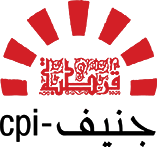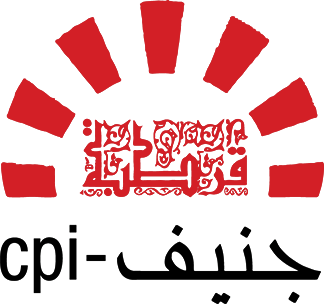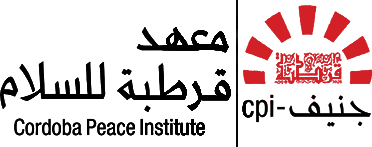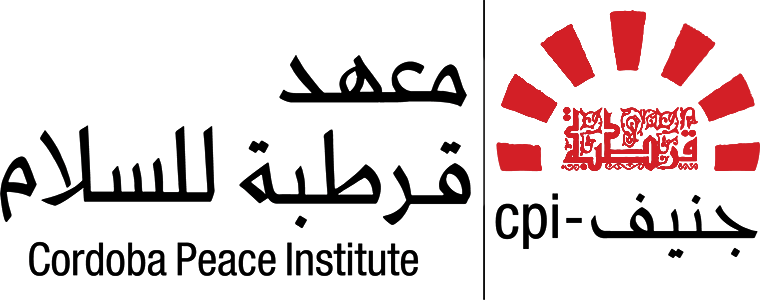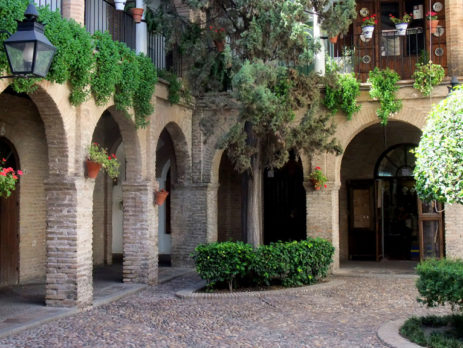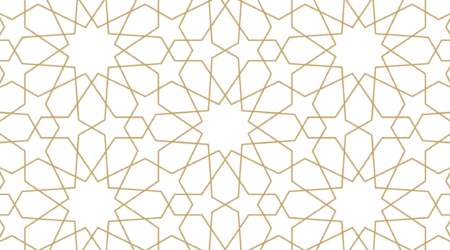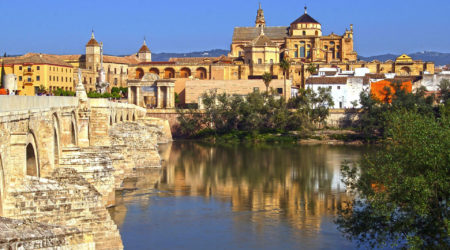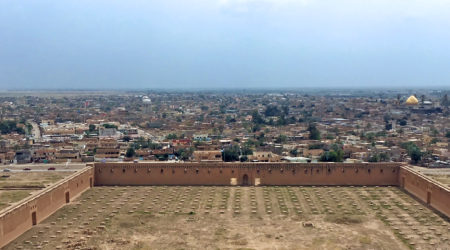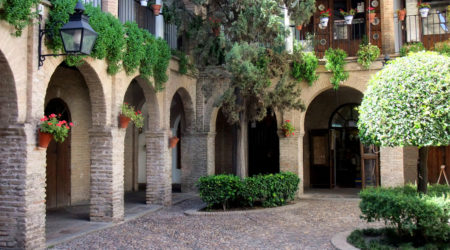The Cordoba Update 1/2017
|
The bi-weekly CORDOBA UPDATE is the product of continuous monitoring work, carried out by the Cordoba Foundation of Geneva team. By analysing and reporting on key events and trends in the Foundation’s areas of interest, we aim to draw readers’ attention to pertinent developments in North Africa, the Sahel, West Asia and Europe, which are not always covered in ‘mainstream’ media. In addition to sharing news from these four regions, the Cordoba Update is an opportunity for the Foundation to provide regular updates on its publications, events and other developments. In line with the programmes and projects funded by partners of the Cordoba Foundation of Geneva, updates and information are included under the following themes:
For questions and/or feedback regarding the content and form of the Cordoba Update, please contact Sarah Franck: sarah.franck@cordoue.ch Le CORDOBA UPDATE est un bimensuel qui présente le travail continu de suivi réalisé par l’équipe de la Fondation Cordoue de Genève. Par l’analyse des événements et tendances qui concernent les domaines d’intérêt de la Fondation, nous visons à attirer l’attention de nos lecteurs sur les développements pertinents en Afrique du Nord, dans le Sahel, en Asie de l’Ouest et en Europe, une actualité qui n’est pas toujours couverte dans les médias dits ‘traditionnels’. Outre le partage de l’actualité de ces quatre régions, le « Cordoba Update » est un moyen pour la Fondation de fournir des mises à jour régulières sur ses publications, événements et autres développements. En accord avec les programmes et projets financés par les partenaires de la Fondation Cordoue de Genève, les mises à jour et informations concernent les thèmes suivants :
Pour des questions et / ou des commentaires concernant le contenu et la forme du Cordoba Update, veuillez contacter Sarah Franck : sarah.franck@cordoue.ch |
ISLAMIST-SECULAR RELATIONS / RELATIONS ENTRE SÉCULIERS ET ISLAMISTES
No contribution on this topic
TRANSITION AND POLITICAL PARTICIPATION / TRANSITION ET PARTICIPATION POLITIQUE
Egypt, 24.01.2017: The Art of War in Egypt
Maged Mandour, a political analyst, wrote in Sada, Carnegie Endowment of International Peace that “Egypt’s massive military purchases to build its air power may be aimed at repressing an anticipated urban uprising that resembles Syria’s. He added “since Abdel Fattah el-Sisi became president in June 2014, the Egyptian military has embarked on a massive spending spree. The value of arms transfer agreements Egypt signed in 2015 was the second-largest among developing countries, at $11.9 billion. This included $5.9 billion from France for 24 Rafale jet fighters and $1.1 billion for two Mistral helicopter carriers, whose primary purpose is amphibious landing and assault operations.” He concluded saying, “considering the lack of credible traditional threats, the unsuitability of the weaponry for current counter-insurgency operations, and the risk-averse nature of Egyptian foreign policy, these weapons are most likely aimed at repressing a mass, urban uprising—with little regard for the civilian causalities fighter jets and attack helicopters are liable to incur…. the regime’s priority on such military spending given the economic crisis is perhaps an indication of how much they fear and prepare for large-scale internal conflict.”
U.S. President Donald Trump spoke with Abdel-Fattah el-Sissi, who expressed hope for a “new push” in bilateral relations under Trump’s administration. Egypt’s presidency spokesman said that the newly-inaugurated Trump called el-Sissi on Monday, 23 January 2017 and “expressed his appreciation for the difficulties Egypt bears in its war against terrorism.” The Trump indicated he was committed to ensuring that U.S. military assistance to Egypt effectively supports the Egyptian military’s fight against terrorism. He added, “Trump indicated he was committed to ensuring that U.S. military assistance to Egypt effectively supports the Egyptian military’s fight against terrorism.”
On 24 January 2017, Abdel-Fattah El-Sisi praised and honored policemen killed in recent years in a celebration marking Police Day (25 January), saying that Egypt is “fighting a vicious war and the whole world knows that it is fighting it alone.” Sisi added Egypt has been fighting a 40-month war fought by “men who took the responsibility to protect Egyptians,” referring to policemen. He called on the Egyptian people to support the police and all state institutions. He warned that the war against the country aims to divide it, saying that there were attempts in 2011 to create a division between the police and army and between the people and the army.
Meanwhile, flights between Russia and Egypt could be resumed not earlier than late February, Russian news agency TASS reported on Monday, 23 January, citing a source in Cairo close to the ongoing inspection checks on Egyptian airports. Egypt has been implementing tighter security measures at its airports since a Russian passenger flight crashed shortly after taking off from Sharm El-Sheikh International Airport in October 2015.
Links for more information:
http://carnegieendowment.org/sada/index.cfm?fa=67781
http://www.madamasr.com/en/2016/12/27/news/u/us-report-egypt-topped
http://english.ahram.org.eg/NewsContent/1/64/256781/Egypt/Politics
http://www.reuters.com/article/us-usa-trump-egypt-sisi
http://english.ahram.org.eg/NewsContent/1/64/256774/Egypt/Politics
Tunisia, 14-25.01.2017: Six Years on, the Revolution is Still Underway
Six years on the political, social and intellectual dynamics unleashed in Sidi Bouzid, on 17 December 2011, are still underway in Tunisia. This year’s celebrations of the 14 January anniversary of the ousting of former president Ben Ali were marked by a gathering in Tunis of the families of the martyrs and the wounded during the confrontations between the protestors and the Ben Ali regime’s security forces in 2010-11. The rally took place around the statute of Bourguiba, now re-erected on Bourguiba Avenue (meters away from the ministry of interior), and in squares nation-wide after Ben Ali removed them during his rule. The families demanded justice and compensation: justice because many of the snipers are still free and compensation because the coordination of the families of the victims is still awaiting the release of the official list by the government. Coming mostly from Sidi Bouzid, Gafsa, and Kessrine, the scene looked as if the marginalised periphery has come to the centre of the establishment to demand answers. Tunisia has started to deal with its past through the public hearings organised by the Truth and Dignity Commission in December, but there is still a long way to go beyond the symbolic gesture of rehabilitating Bourguiba in Tunisia’s collective memory.
Meanwhile, President Beji Caid Essebsi, at 90, chose Gafsa, capital of Tunisia’s underdeveloped south, to mark the anniversary. There, he announced the launch of 100 development projects that would create jobs for the frustrated youth. Essebsi’s charm offensive was an uphill task and patience was running low even by elder southerners who turned out to his rally. In other regions of the geographic and development periphery such as el Kaf, Meknassi, Ben Guerdan, etc. frustrated young protesters engaged in clashes with riot-police. Six years on, the development faultline that Tunisian media commentators now draw between the Sahel and the Sahara, is not only geographic but also political, as far as access to governance mechanisms is concerned. The media landscape itself, although more diverse than six years ago, is now heavily dominated by business circles close to the ruling party Nidaa Tounes or the establishment that has always ruled independent Tunisia.
Politically, the agenda is dominated by three thorny issues. First there is the pressing issue of regional development. This dossier is related to pending legislation in regard to the decentralisation policy, which was enacted by the constitution, but awaits its implementation once the parliament passes its laws and the government executes its public policies.
The second issue related to decentratisation is passing the law on the municipalities’ elections. The bill, proposed by Habib Sid’s government, exactly a year ago, is still pending in the parliament because political parties could not agree on how to ensure the neutrality of armed forces in politics. Ennahdha is opposed to allowing the armed forces to take part in elections, but seems to be open to exploring other mechanism for their participation.
The third political issue that has dominated the political debate in December and the beginning of this year is the fate of Tunisian returnees from conflict zones such as Libya, Syria, and Iraq. The interior ministry revealed that it has a list of 2,929 Tunisians in conflict zones, half of which are in Syria, 500 in Libya, 150 in Iraq, and 400 in other countries, especially Europe. Around 800 (including 30 women) have returned to Tunisia, according to the same source. There is a debate around whether it is not in the national interest of Tunisia to reject its returnees. The leftist Popular Front, some voices in Nida Tounes, and other liberal parties such as the PDL party have called for banning these returnees, and even to strip them of Tunisian nationality. Ennahdha, however, brandishes the constitution’s article 25 of Chapter III (Rights and Freedoms) which stipulates that “no citizen shall be stripped of the Tunisian nationality, nor be sent to exile or extradited, nor banned from returning to his/her country”. Faced by this constitutional safeguard that is defended not only by Ennahdha but also other liberal constitutional scholars, some political parties, including the FP, have called for revision of the constitution. Others proposed to change Tunisian passports to avoid re-opening the debate of the constitution endorsed just two years ago.
While this debate is taking place in the parliament and civil society Tunisia’s labour union UGTT is busy this week (22-25 Jan.) with its 23rd congress to elect a new leadership to succeed Hocine el-Abbassi’s executive committee. The UGTT has played a key role in the political transition in the last six years, especially in the run up and during the national dialogue in 2013-2014. After the adoption of the 2015 constitution the UGTT relatively disengaged from the political transition debates to rather focus on economic and labour issues, during Habib Sid’s government. One marked milestone of this opposition was the union’s opposition to the bill for economic reconciliation proposed by President Essebsi, in July 2015. The UGTT did not give a warm welcome to the nomination of Youssof Chahed as prime minister. When he proposed to postpone the raise in salaries agreed between the UGTT and former prime minister Habib Sid, in Sept. 2015, Abbassi criticised Chahed’s blind submission to the recommendation of the World Bank, and even threatened to call for a general strike on 8 December 2016. The last time the UGGT call for a general strike it cost Ben Ali his rule. But a day before the set date an agreement was reached with the government to implement the workers’ salary raises. Now the union is electing its new leadership at a very difficult time for the Tunisian economy and transition.
Links for more information:
http://nawaat.org/portail/2017/01/17/blesses-et-martyrs-de-la-revolution
http://nawaat.org/portail/2017/01/24/reportage-les-femmes-de-meknassi
http://nawaat.org/portail/2017/01/14/kasserine-portraits-dune-revolution
http://www.tap.info.tn/en/Portal-Politics/8646823-after-several-month
http://www.economist.com/news/middle-east-and-africa/21714967
http://kapitalis.com/tunisie/2017/01/03/majdoub-la-plupart-des-terroristes
http://kapitalis.com/tunisie/2016/12/27/hamma-hammami-contre-le-droit-du-retour
http://kapitalis.com/tunisie/2016/12/26/abir-moussi-demande-la-decheance-de-nationalite
http://kapitalis.com/tunisie/2016/12/29/pour-empecher-lentree-des-terroristes-harbaoui-propose
https://goo.gl/wBMCFH (Le Maghreb, original Arabica)
http://www.legislation.tn/sites/default/files/news/constitution-b-a-t
RELATIONS BETWEEN COMMUNITIES OF DIFFERENT ETHNIC, CULTURAL AND RELIGIOUS AFFILIATIONS /
RELATIONS ENTRE COMMUNAUTÉS DE DIFFÉRENTES AFFILIATIONS ETHNIQUES, CULTURELLES ET RELIGIEUSES
Europe, 24.01.17 : Sommet d’une extrême droite européenne galvanisée par l’investiture de Donald Trump à Coblence, Allemagne
Le samedi 21 janvier 2017 s’est tenue une réunion des chefs de file de l’extrême droite européenne à Coblence, Allemagne. Les partis d’extrême droite européenne se sont réunis à l’initiative du groupe Europe des nations et des libertés (ENL) dont Marine Le Pen, présidente du Front National français, est la coprésidente au Parlement européen.
Marine Le Pen et Geert Wilders, président du PVV néerlandais (pour plus d’information sur Geert Wilders : http://cordoue.ch/the-cordoba-update/item/494-the-cordoba-update-21-2016) ont été invités par Frauke Petry, présidente du parti d’extrême droite allemand AFD, en tant qu’invités de marque. Cette rencontre a notamment été l’occasion pour les partis d’extrême droite européens de rappeler leur soutien à Donald Trump, dont l’investiture s’était déroulée la veille.
Galvanisés par cette investiture, Frauke Petry et ses invités ont martelé leur volonté de « redonner sa liberté au Vieux Continent » et ont appelé au « réveil des peuples européens ». L’Allemagne était au centre du discours et Geert Wilders a souligné son soutien à Frauke Petry pour une Allemagne, sans Angela Merkel, « forte », « confiante », « fière », qui « défend sa culture et sa civilisation ». Ils ont également unanimement décrit l’Europe comme une « prison des peuples » et ont dénoncé l’immigration ainsi que les « méfaits de l’islam politique ».
Cet évènement s’est déroulé alors que les trois parties, PVV, FN ET AFD sont en bonne place pour les futures élections qui vont se dérouler en France (élections présidentielles de mars 2017, second tour en mai 2017), aux Pays-Bas (élections législatives de mars 2017) et en Allemagne (élections législatives de septembre 2017). Si des réserves sont à apporter quant à l’accession au pouvoir de ces partis, il est cependant clair que ces derniers reçoivent de plus en plus le soutien de citoyens désillusionnés par l’Europe et qui se retrouvent dans le discours simple, anti-élite, anti-migrants et eurosceptique des partis d’extrême droite. Le parti AFD a, par exemple, beaucoup de chance d’entrer pour la première fois au Parlement fédéral allemand en 2017.
La bonne entente affichée lors du sommet de Coblence masque toutefois quelques faiblesses. La cheffe de l’AFD doit en effet actuellement affronter une aile dure de son propre parti, menée par Bjorn Höcke, chef de l’AFD en Thuringe. Ce dernier a notamment qualifié le Mémorial de l’Holocauste érigé à Berlin de « monument de la honte » et a recommandé « un virage à 180 degrés » de la politique de mémoire allemande, lors d’un discours à Dresde le 17 janvier dernier. De plus, la dirigeante de l’AFD a fait part de ses réticences à un rapprochement avec le FN, qu’elle qualifie de “socialiste” notamment du point de vue des positions du parti en matière économique.
Enfin, de nombreuses manifestations ont eu lieu en marge de la rencontre. Des activistes de l’organisation Avaaz ont notamment placé en signe de protestation des statues de Hitler, Mussolini et Staline entre autres, en face de celle de l’Empereur allemand Wilhelm. Pour le président de Avaaz, Pascal Vollenweider, cette action vise à envoyer le message fort d’une lutte contre les idées obsolètes et dangereuses de ces partis, qui eux se revendiquent à l’inverse comme moderne et voulant incarner l’avenir. De nombreux journaux et autres organes de presse allemands ont été exclus de cette rencontre, à savoir les magazines Der Spiegel et Compact, les chaînes de télévision publique ARD et ZDF, ainsi que les quotidiens Handelsblatt et Frankfurter Allgemeine Zeitung. Ces interdictions résonnent avec l’accusation faite par les partis d’extrême droite envers des médias qu’il qualifie « médias d’élites », d’être contre eux et biaisés en faveur du gouvernement.
Liens pour plus d’informations :
http://fr.euronews.com/2017/01/23/2017-l-annee-des-patriotes
http://www.rts.ch/play/tv/19h30/video/reunion-de-lextreme-droite
https://www.letemps.ch/monde/2017/01/17/parti-dextreme-droite-allemand-npd-ne-sera-interdit
http://www.liberation.fr/planete/2017/01/21/a-coblence-l-extreme-droite-europeenne-refait-le-monde
http://www.arte.tv/guide/fr/emissions/AJT/arte-journal/?vid=071825-016_PLUS7-F
https://www.letemps.ch/monde/2017/01/20/lextreme-droite-europeenne-se-retrouve-coblenz
http://www.huffingtonpost.fr/2017/01/21/avant-sa-rencontre-avec-lextreme-droite-allemande
http://www.aljazeera.com/news/2017/01/thousands-protest-conference-germany
http://www.independent.co.uk/news/world/europe/germany-afd-bjoern-hoecke-berlin-holocaust
Bahrain, 15.01.2017: Executions in Bahrain Provoke Outrage at Home and Abroad
On 15 January, three Bahraini nationals – Abbas al-Samea (27), Ali al-Singace (21), and Sami Mushaima (42) – were executed by firing squad, after being found guilty of murdering three police officers through the deliberate planting and detonating of explosive devices, in 2014. Seven other defendants were given life terms. According to an official source, the legality of the ruling was confirmed by the Arab Federation for Human Rights, which monitored the stages of the court trial in Bahrain and attended several court hearings, and the National Institution for Human Rights.
In response to the executions, a number of Bahrainis protested against the government and, in particular, the ruling Al Khalifa family, with videos of crowds calling for the fall of King Hamad of Bahrain. In an attempt to disperse the crowds, riot police used tear gas and birdshot. Despite this, tensions have apparently been growing in the small Gulf State, with numerous reports of arson attacks against government buildings and of demonstrators constructing roadblocks with burning tyres.
Bahrainis were accompanied in their protests by regional and international human rights groups and activists who, as commentators have noted, described the court-ordered killings as “politically-motived and extrajudicial”. According to reports, the three men were convicted “despite serious concerns that their convictions were based on evidence obtained under torture.” These responses also demonstrate what some commentators have pin-pointed as Bahraini’s feelings of “isolation” from the international community, where the actors capable of pressuring the Bahrain government “to reform, democratise, and implement human rights reform” have abetted perceived excesses of Gulf rulers against populations.
In the wake of the executions, on 16 January, Bahrain’s Al-Wasat newspaper, which has been described as an “independent voice in a deeply divided country,” was ordered to close its online site by the Ministry of Information. The newspaper was described as “inciting division in the community, jeopardising national unity and disrupting public peace.” According to Middle East Monitor, the ban was the result of Al-Wasat’s publication of a video in which a Shia cleric and member of the Al-Wafa party, Murtaza Sindi, described a new phase of armed resistance against the ruling Al Khalifa family. In the video, Sindi propounded the view that Bahrainis face the choice between justice in their country or legitimate resistance against the ruling elite. The ban on Al-Wasat’s online site was lifted three days later, on 19 January.
In its recently-published 2017 World Report, Human Rights Watch has warned the Bahraini regime against “‘accelerated repression’ of peaceful activists and the continued detention and prosecution of human rights protesters;” also calling for the government of Bahrain to “reinvigorate a stalled process of political reform by reversing the dissolution of [the opposition association] al-Wifaq, releasing high-profile political detainees, and ending its harassment of activists.” Numerous observers have predicted that, without honouring the demands of the country’s activists, the Al Khalifa regime could well face more militant forms of political opposition in coming months and years.
Links for more information:
http://bna.bh/portal/news/766017
https://www.bna.bh/portal/en/news/766452
https://www.bna.bh/portal/en/news/766407
https://www.bna.bh/portal/en/news/765959
https://www.bna.bh/portal/en/news/765768
https://www.bna.bh/portal/en/news/765959
http://alwatannews.net/article/150398/Bahrain/
https://theconversation.com/a-triple-execution-in-bahrain
Video: https://www.youtube.com/watch?v=UQF5Pl43zkA
https://www.alaraby.co.uk/english/news/2017/1/15/black-day-in-bahrain
http://www.middleeasteye.net/news/bahrain-city-hall-set-ablaze-execution-protests-rage
http://www.middleeasteye.net/columns/truth-lies-and-voice-under-threat-bahrain
https://www.middleeastmonitor.com/20170119-shia-cleric-declares-jihad-on-bahrain
https://www.hrw.org/world-report/2017/country-chapters/bahrain
Iraq, 12-19.01.2017: Is Competition for Control of Iraq at the Local, Provincial and Regional Levels Jeopardising National Unity?
Ongoing power-struggles in Iraq are being played out in numerous arenas across the country. From jockeying between militia groups and Iraqi police forces in urban areas, to competition over constituencies at the provincial level, Iraq is witnessing growing and important political tensions on the side-lines of its military campaign against the so-called Islamic State.
The breakdown of the social contract between the Iraqi central government and its population has had a devastating effect on security in the country’s urban centres, including in Baghdad. A loss of faith in the Iraqi police and security forces, which are seen to be corrupt and abusive of their power over civilians, has led to an increased reliance on traditional justice mechanisms and the reliance on militia groups, called the Popular Mobilisation Units (PMU) which control various neighbourhoods of the capital. Local sources report that the majority of Baghdad’s districts have an office “belonging to whichever militia is present in that part of the city.” This is also the case in the southern provinces of Iraq, where militias not only collaborate with official security forces in preventing violent attacks against civilians, but also carry out covert surveillance work, sending “their informants [to] roam streets, markets and residential areas in civilian clothing, watching out for terrorist activity.”
Despite the political and social significance of the waxing power of Iraqi PMUs, they reportedly enjoy widespread support among the civilian population because of their success in combatting the Islamic State group. Although the central government has taken steps to integrate these armed groups into the official security apparatus (see The Cordoba Update 21/2016), the realities of power-relations between the PMU and police forces at the local level mean that Iraqi paramilitaries are effectively above the law. As one police officer from Baghdad reported: “We cannot hold [the militia] accountable for any violations they may commit… They move around in cars with tinted windows and without license plates. They carry personal IDs that may well be fake and the police at the checkpoints cannot just stop them.”
Further tensions have been developing outside of the nation’s capital, with the redefinition of districts and sub-districts in Iraq’s central Anbar Province. A majority of the provincial council has voted in favour of establishing four new provincial districts, including Karmah, east of Fallujah; Baghdadi, west of Baghdad; Amiriyat al-Samoud, southwest of Fallujah; and Nahib, southwest of Ramadi. According to one source, five villages were also changed into sub-districts within these. A tribal leader in Fallujah, Daham al-Zubai, was quoted as saying that “tribal and political influence were among the most important reasons behind the creation of these new districts,” adding that “most of the new districts are actually the bases for influential individuals who are trying to control nearby villages and to benefit from them, in terms of political gains.”
This development is significant in the lead-up to Iraq’s provincial elections, which are slated to be held in September 2017. International and local observers have advised that these elections will be highly contested, with the entry of political players affiliated with newly-powerful armed militia, as well as due to fractures within existing political blocs. While the rezoning plan in Anbar has been promoted as a means of providing more government jobs and improving access to state services like electricity and sanitation in the new districts, the potential negative outcomes of gerrymandering in Iraq could be exacerbated tensions between sectarian, ethnic and tribal constituencies. Such tensions have been observed in other parts of the country, specifically between Kurdish and Turkmen constituencies in the ethnically-mixed Kirkuk Province, which has not held elections since 2005. Officials have stated that the current conditions in that province are inadequate for fair and accurate polls, as parts of its territory are currently controlled by the Islamic State group and because its urban areas have been impacted by a huge influx of displaced Iraqis.
In addition to causing massive internal displacement, the so-called Islamic State in Iraq has also dealt a devastating blow to the diverse, indigenous minorities of the country’s northern Ninevah Province; including its Assyrian Chaldean, and Syriac Orthodox Christians, Yezidis, Shabak, Sufi, and Sunni Muslim populations. According to some reports, a proposal to create an autonomous, democratic and pluralistic province within the Ninevah area is gaining traction among members of the international coalition that is currently combatting the so-called Islamic State. An autonomous region for Iraq’s embattled minorities is argued to be a means of protecting Iraq’s Christians, Yezidis, and others, and preserving their continued membership of the nation. This proposal would see the creation of a second regional government in Iraq, alongside the existing Kurdistan Regional Government, which is led by the Regional President, Masud Barzani.
With the continued internally- and externally-driven; de facto and planned; local, provincial and regional division of Iraq, the population increasingly views their home as a “giant chessboard for world powers,” according to one commentator. With such jockeying for power at all levels of Iraqi society, many observers question what shape the future of Iraq will take and what impact this will have on the potential for transforming conflict in the country.
Links for more information:
http://www.niqash.org/en/articles/security/5524/As-Iraqi-Police-Lose-Control
http://cordoue.ch/the-cordoba-update/item/494-the-cordoba-update-21-2016
http://www.niqash.org/en/articles/politics/5516/Iraqi-Province-Creates-New-Districts
http://www.rudaw.net/english/kurdistan/200120174
https://theconversation.com/iraqs-minorities-need-a-province-to-call-their-own
http://www.iraqinews.com/baghdad-politics/barzani-says-declare-kurdistans-independence
https://www.middleeastmonitor.com/20170119-iraq-on-the-ground-through-a-lens
Liban, 21.01.2017 : Attentat suicide déjoué à Hamra, Beyrouth
Samedi soir, 21 janvier 2017, les services de renseignements de l’armée et des forces de sécurité intérieure libanais ont intercepté un homme sur le point de faire détonner sa ceinture d’explosif dans un café très fréquenté de Hamra, à Beyrouth. Cet homme, jeune Libanais de Saïda, aurait avoué avoir été un partisan du prédicateur Ahmad al-Assir, dont les supporters avaient attaqué l’armée libanaise en printemps 2013, avant de devenir membre de l’organisation de l’Etat islamique (EI). Il aurait déclaré aux forces de sécurité que l’ordre de se faire exploser lui aurait été donné par l’EI accompagné d’une fatwa émise par un cheikh de Ain el-Helweh, camp palestinien près de Saïda.
Ce dernier fait relance les peurs liées à ce qui se passe à l’intérieur de ce camp, et des camps palestiniens en général. Le souvenir de Nahr el-Bared n’est pas loin, événements qui avaient vu s’affronter en 2007 l’armée libanaise et un groupe d’extrémistes violents cachés à l’intérieur de ce camp palestinien du nord du pays. Les conséquences avaient été graves, des dizaines de morts parmi les civils et l’armée, une vague de réfugiés devant fuir le camp, de nombreuses arrestations dont certains cas n’ont pas encore été jugés.
Ces dernières années, le camp de Ain el-Helweh, résidence de plus de 54’000 réfugiés palestiniens enregistrés auxquels se sont ajoutés des milliers de Palestiniens fuyant la Syrie, est l’objet de grandes préoccupations. En septembre 2016, le présumé émir de l’EI au Liban avait été arrêté dans ce camp. En novembre dernier, les autorités libanaises et palestiniennes avaient annoncé un accord sur la construction d’un mur de protection devant encercler le camp. L’objectif annoncé était la diminution des affrontements entre les habitants du camp et l’armée libanaise et une meilleure surveillance de ce qui se passe à l’intérieur grâce à la construction de quatre tours le long du mur. Quelques jours après le commencement des travaux, la construction a cependant été interrompue à la suite des manifestations et des critiques dénonçant ce projet. En décembre dernier, des affrontements entre les différents groupes armés au sein du camp ont fait une victime et plusieurs blessés. Ces affrontements se répètent depuis le commencement de la guerre en Syrie, des analystes les interprètent comme une des manifestations des débordements au Liban de la guerre voisine. Cette menace à la sécurité affecte durement les habitants, alors que l’UNRWA est régulièrement obligé d’interrompre ses services, fermant ses écoles et ses centres de santé.
Or la menace sécuritaire ne se limite pas aux camps de réfugiés et à leurs abords. Nabatiyé, ville au sud du Liban et ville natale de Hassan Nasrallah, secrétaire général du Hezbollah, a vu les mesures sécuritaires se renforcer considérablement à son entrée. La raison en serait les rumeurs de voitures piégées. L’armée n’est pas la seule à sembler en alerte générale. Il y a quelques jours, des médias israéliens auraient révélé que le Hezbollah avait renforcé ses mesures de sécurité dans la banlieue sud, également par peur d’un acte terroriste.
La sécurité individuelle est aussi menacée par une recrudescence des enlèvements ces derniers temps. Dans ce contexte très préoccupant, certains médias voient dans le succès de l’intervention de samedi dernier une occasion de couper court aux critiques et de donner une crédibilité au gouvernement dans le dossier sécuritaire. Ces mêmes médias se demandent si la mobilisation sécuritaire affirmée dans les milieux politiques et sécuritaires est apte à se traduire en actes concrets et craignent qu’elle ne serve d’abord à détourner l’attention du dossier de la nouvelle loi électorale, champ de travail prioritaire de ce gouvernement avant les législatives annoncées pour juin 2017.
Liens pour plus d’informations :
https://www.lorientlejour.com/article/1030771/-plaque-au-sol-le-kamikaze-tentait-dactionner
https://www.lorientlejour.com/article/1031049/premiers-effets-de-lattentat-dejoue-de-hamra
https://www.lorientlejour.com/article/1030328/sous-haute-protection-nabatiye-vit-sous-la-hantise
https://www.alaraby.co.uk/english/news/2016/9/22/lebanon-arrests-suspected-islamic-state-group
https://www.alaraby.co.uk/english/news/2016/11/19/lebanon-begins-building-security-wall-around
http://www.aljazeera.com/news/2016/11/lebanon-freezes-plan-ain-al-hilweh-racist-wall
http://imemc.org/article/islamist-extremism-spills-over-into-palestinian-ain-el-helweh-refugee-camp
Maroc, 25.01.2017 : Formation du gouvernement au point mort
Plus de 100 jours après les élections, et malgré de vifs espoirs pendant le mois de décembre, le Maroc n’a, à l’heure actuelle, toujours pas de gouvernement. En effet, la tâche s’est avérée plus difficile que prévu pour Abdelilah Benkirane, qui pour le moment n’a pas réussi à former sa coalition gouvernementale. Pour l’instant, les tractations sont au point mort. Il semblerait que le PJD se soit mis des bâtons dans les roues, en portant trop d’espoir sur des alliances potentielles non acquises, et en annonçant trop vite des lignes rouges qu’il ne dépasserait pas et qui ont rebuté plusieurs alliés potentiels.
Même la mise en place rapide de l’élection du Président de la chambre des représentant n’a pas aidé à faire avancer les choses. Au contraire, pourtant seul candidat à ce poste, Habib El Malki (USFP) a été élu avec seulement198 voix sur 342, c’est-à-dire une toute petite majorité. Le PJD a d’ailleurs voté blanc, et l’Istiqlal a quant à lui quitté l’hémicycle avant la tenue du vote. Ceci démontre le climat tendu et peu propice aux négociations et aux compromis, qui s’est petit à petit installé dans la sphère politique marocaine. Il faut rappeler que Abdelilah Benkirane refuse la participation de l’USFP à sa coalition gouvernementale, ce qui génère un blocage avec le RNI, qui en a fait sa condition à sa collaboration avec le futur gouvernement. A noter tout de même que ce scénario engendre donc la possibilité qu’un gouvernement minoritaire se forme, puisque si Habib El Marki et son parti, l’USFP, ne sont pas admis du côté du gouvernement comme c’est le cas aujourd’hui, ils resteront dans l’opposition qui, grâce à cette élection, démontre qu’elle a la majorité requise de 50% +1.
Liens pour plus d’informations :
http://fr.le360.ma/politique/futur-gouvernement-rendez-vous-en-avril
http://fr.le360.ma/politique/futur-gouvernement-pas-de-deblocage-en-vue
http://fr.le360.ma/politique/futur-gouvernement-listiqlal-reitere-son-ferme-soutien-au-pjd
http://fr.le360.ma/politique/le-roi-voudrait-que-benkirane-ne-demissionne-pas
http://www.leconomiste.com/article/1007628-gouvernement-benkirane-dos-au-mur
http://www.atlasinfo.fr/Futur-gouvernement-marocain-Benkirane-dans-les-sables-mouvants
http://lavieeco.com/news/politique/le-parlement-enfin-en-place
VIOLENT EXTREMISM AND THE WAR ON TERROR / EXTRÉMISME VIOLENT ET LA GUERRE CONTRE LA TERREUR
Egypt, 18.01.2017: 1538 People in Terrorist List
The Cairo criminal court decision added 1,538 people to the so-called “national terrorists list” based on a request from prosecutors for their alleged assistance to the Muslim Brotherhood. This decision “reflects the authorities’ indiscriminate use of broad counterterrorism laws,” Human Rights Watch said on 24 January 2017. Using these laws to impose penalties on people without giving them a chance to defend themselves seriously violates their rights to due process.
The designation’s immediate effects include a travel ban, asset freeze, loss of political rights, and passport cancellation. The people involved were not able to contest the designation, and most may not have been informed about it before the court ruled. The decision can be appealed directly to Egypt’s highest appeals court.
Among those placed on the list were former President Mohamed Morsi and his sons; senior Brotherhood leaders and their sons and daughters; Safwan Thabet, a businessman; the former soccer star Mohamed Abu Trika; Mostafa Sakr, a newspaper publisher; and Hisham Gaafar, a journalist. At least five dead people were placed on the list by the decision.
Abu Trika, one of the country’s all-time greatest soccer players, already had his assets frozen in 2015 based on suspicions of financing the Brotherhood. He has denied ever funding the Islamists, who have been the main target of a fierce government crackdown on dissent led by Sissi.
The terrorist designations were based on Law 8 of 2015 for Organizing Lists of Terrorist Entities and Terrorists, issued by a decree by President Abdel Fattah al-Sisi in February 2015, in the absence of a parliament. The law authorizes the prosecutor general to request designated Cairo criminal courts to name individuals or groups to the list for three-year renewable periods. The court has seven days to consider the request before deciding.
The law violates several legal protections laid out in the Egyptian Constitution, previous decisions of Egypt’s Supreme Constitutional Court, and international human rights law.
Links for more information:
https://www.hrw.org/news/2017/01/24/egypt-court-names-1500-terrorist-list
https://www.washingtonpost.com/world/middle_east/rights-group-faults-egypt
http://www.cbsnews.com/news/egypt-soccer-mohamed-aboutrika-terror-watch-list-no-fly
Mali, 17.01.2017 : l’Accord de paix face à l’épreuve de l’insécurité après une attaque meurtrière contre un camp militaire à Gao
Dans la matinée du 17 janvier, un camp militaire abritant des éléments des Forces armées maliennes (FAMA), des ex-rebelles la Coordination des mouvements de l’Azawad (CMA), à dominante touareg ainsi que des combattants du Groupe d’autodéfense touareg Imghad et alliés (Gatia, pro-gouvernemental) a été la cible d’une attaque suicide à la voiture piégée, peu avant 9h00 (heure locale). Le bilan définitif de cette opération serait de plus de 60 tués et 115 blessés. Selon une source autorisée au sein de la Mission multidimensionnelle intégrée des Nations unies pour la stabilisation du Mali (MINUSMA), « Le kamikaze est venu dans un véhicule et s’est fait exploser », au moment où une patrouille mixte comprenant des membres de la CMA et du Gatia s’apprêtait à partir en patrouille.
D’après les premiers témoignages, le kamikaze était au volant d’un véhicule aux couleurs du Mécanisme opérationnel de coordination (MOC), l’organisme chargé d’organiser les patrouilles conjointes entre les ex-rebelles touareg et les miliciens pro-gouvernementaux prévues par l’accord de paix d’Alger de 2015. Une première patrouille conjointe avait été menée à Gao le 22 octobre dernier, avec une section des FAMA, des éléments des groupes armés signataires (GAS, réunissant le Gatia et la CMA) et un détachement de la force française au Mali, Barkhane. Très vite, l’attentat a été revendiqué par le groupe violent à référence religieuse « Al-Mourabitoune », un groupe créé en 2013 lors de la fusion du Mouvement pour l’unicité et le jihad en Afrique de l’Ouest (Mujao) et les Signataires par le sang de Mokhtar Belmokhtar. Ce groupe demeure actif tout au long de la bande sahélo-saharienne et s’est notamment exprimé après l’attentat via un communiqué diffusé par l’agence privée mauritanienne Al-Akhbar: « Nous mettons en garde tous ceux qui sont séduits par la France pour qu’ils intègrent son alliance. Nous leur réaffirmons que nous n’accepterons pas de casernes, de sièges, de patrouilles ou de convois du colonisateur français qui combattent les moudjahidines ». Le groupe a également donné l’identité du « combattant » qui a commis l’attentat. Il s’agirait d’Abdel Hadi Al-Foulani, qui appartiendrait à l’ethnie peule.
Le lendemain, le Conseil de sécurité des Nations Unies s’est réuni pour évoquer la situation au Mali et la question de l’application de l’accord de paix entre les rebelles touareg et Bamako. L’idée d’imposer des sanctions aux groupes et aux personnes entravant la mise en œuvre de l’Accord d’Alger a été évoquée par les représentants de plusieurs pays, notamment la France et la Suède (présidence en exercice du Conseil en janvier 2017). Selon M. Ladsous, Secrétaire général-adjoint de l’ONU en charge des opérations de maintien de la paix, « en l’absence d’autorité étatique et des arrangements intérimaires, le phénomène terroriste prend des proportions de plus en plus inquiétantes au nord et au centre du Mali ». Pour ce dernier, « si la situation sécuritaire continue à se détériorer ainsi, il n’y aura plus de paix à maintenir au Mali ». Pour illustrer ces inquiétudes, le porte-parole de l’état-major malien a également dressé le bilan des actions terroristes commises en 2016. La plupart de celles-ci sont attribuées aux groupes violents à référence religieuse. Selon lui, les groupes armés ont mené 118 attaques contre l’armée malienne, la force de paix de l’ONU (MINUSMA) et la force française Barkhane. La force française a quant à elle mené 125 opérations en 2016 au Sahel (Mauritanie, Mali, Niger, Tchad, Burkina Faso), des pays dans lesquels elle opère seule ou en partenariat avec des forces locales.
La Convention des partis politiques de la majorité présidentielle (CMP), qui accuse certains acteurs internationaux, notamment les Nations unies et la France, de « sympathie avec les rebelles », a publiquement exprimé des doutes sur la bonne foi de la MINUSMA et de Barkane, accusés de laxisme dans l’attentat terroriste perpétré contre le camp du MOC à Gao. En conséquence, Mr. Dicko Younouss Hamèye, Porte-parole de la CMP, invite les deux principaux partenaires du Mali à une collaboration sincère.
L’attentat de Gao montre la fragilité des conditions de mise en œuvre de l’Accord de paix d’Alger. En effet, il semblerait qu’à peine les groupes ex-rebelles se joignent à la force commune (CMA, Gatia, FAMA et Barkhane) pour engager les opérations de patrouilles dans la zone septentrionale malienne, que leurs anciens alliés se réactivent. Ces derniers chercheraient à fragiliser l’engagement de certains groupes dans le processus, notamment celui des touarègues. Au-delà de la revendication assumée par « Al Mourabitoune », les observateurs entrevoient aussi une alliance sacrée entre l’ex-Mujao, Ansar Dine, le Front de libération du Macina et AQMI, renforcés par certains chefs tribaux locaux. Le but de cette alliance serait d’affirmer leur force et de rappeler qu’ils demeurent une partie au conflit avec laquelle il faudra compter pour une sortie de crise au Mali et, au-delà, dans d’autres pays du Sahel.
Liens pour plus d’informations :
http://www.opex360.com/2017/01/18/mali-lourd-bilan-apres-lattaque-dun-camp-militaire-gao
http://www.opex360.com/2017/01/19/lattentat-camp-militaire-de-gao
http://www.ledauphine.com/france-monde/2017/01/18/attentat-contre-un-camp-militaire-au-mali
http://www.jeuneafrique.com/395408/politique/mali-lattentant-suicide-contre-base-militaire-de-gao
http://malijet.com/actualte_dans_les_regions_du_mali/rebellion_au_nord_du_mali/175948
http://specialdefense.over-blog.com/2017/01/mali-ce-que-l-on-sait-de-l-attaque-terroriste
The views and perspectives contained in the Weekly Update are from individual contributors and external sources, and do not necessarily reflect the opinions or position of the Cordoba Foundation of Geneva. The links are neither intended as an endorsement of particular publications nor the only source for the updates, but to connect to information in the public domain, for those interested in background or further details.
